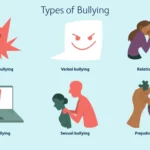Learning a new language is an exciting journey that opens up a world of opportunities. However, finding the right language learning tool can be a daunting task. With so many options available, it’s hard to know where to start. That’s where Rosetta Stone comes in. As a trusted leader in language learning, Rosetta Stone offers an immersive and engaging experience that has helped millions of learners worldwide achieve their language goals. In this article, we’ll explore the benefits of Rosetta Stone, how to sign up for free access, which languages are available, and how it compares to other language learning tools. So, whether you’re a beginner or an advanced learner, let’s expand your horizons with Rosetta Stone.
Contents
- How Teachers Can Benefit from Rosetta Stone
- How to Sign Up for Free Rosetta Stone Access
- Which Languages are Available?
- How to Make the Most of Your Rosetta Stone Subscription
- Why Rosetta Stone is the Best Choice for Language Learning
- The Benefits of Learning a New Language
- How Rosetta Stone Compares to Other Language Learning Tools
- Conclusion
-
Frequently Asked Questions
- What sets Rosetta Stone apart from other language learning tools?
- What kind of languages are available on Rosetta Stone?
- How does Rosetta Stone help with cognitive function?
- How can learning a new language with Rosetta Stone enhance travel experiences?
- What are some of the benefits of learning a new language with Rosetta Stone?
- Is Rosetta Stone suitable for beginners?
- How does Rosetta Stone’s adaptive learning technology work?
- How does Rosetta Stone compare to other language learning tools like Babbel and Duolingo?
- What is the cost of a Rosetta Stone subscription?
- Can Rosetta Stone be used in a classroom setting?
- References
How Teachers Can Benefit from Rosetta Stone
Rosetta Stone is not only a valuable tool for language learners, but also for teachers. With Rosetta Stone, teachers can easily create a personalized learning experience for their students. The platform offers a wide range of resources that teachers can use to supplement their classroom instruction.
One of the main benefits of Rosetta Stone for teachers is the ability to monitor student progress. The platform tracks each student’s progress, allowing teachers to identify areas where their students need additional support. This feature also allows teachers to adjust their teaching methods to better meet the needs of their students.
Rosetta Stone provides teachers with a variety of teaching resources. The platform includes lesson plans, worksheets, and assessments that teachers can use to create a comprehensive language learning curriculum. These resources are designed to be interactive and engaging, making it easier for students to learn and retain new information.
Another benefit of Rosetta Stone for teachers is the ability to create customized language lessons. The platform allows teachers to tailor lessons to the unique needs of their students, ensuring that each student receives a personalized learning experience. This feature also allows teachers to create lessons that are relevant and meaningful to their students.
Finally, Rosetta Stone provides teachers with access to a global community of language learners. The platform includes a forum where teachers can connect with other educators around the world. This feature allows teachers to share ideas, collaborate on lesson plans, and learn from one another.
Rosetta Stone is an invaluable tool for teachers who want to provide their students with a comprehensive language learning experience. With its wide range of resources and customizable features, Rosetta Stone is the perfect platform for teachers who want to enhance their language instruction.
How to Sign Up for Free Rosetta Stone Access
Are you interested in learning a new language with Rosetta Stone, but hesitant to commit without trying it out first? Good news: Rosetta Stone offers a free trial for new users. Here’s how to sign up:
1. Go to the Rosetta Stone website and click on “Start your free trial” button.
2. Choose the language you want to learn from the list of available options.
3. Create an account by entering your email address and creating a password.
4. Download the Rosetta Stone app on your device, or access the online platform through your web browser.
5. Start your free trial and begin learning!
Note that the free trial gives you access to a limited number of lessons. If you decide to continue using Rosetta Stone after the trial period, you will need to purchase a subscription. However, the free trial is a great way to test out the program and see if it’s right for you.
So what are you waiting for? Sign up for your free Rosetta Stone trial today and start your language learning journey!
Looking for more educational resources? Check out our article on Quizlet student discounts!
Which Languages are Available?
Rosetta Stone offers language learning programs for over 20 languages, including Spanish, French, German, Italian, Mandarin, Japanese, Arabic, and more. With such a wide variety of languages to choose from, learners can immerse themselves in any language and culture they desire. The program is perfect for those looking to learn a new language from scratch or enhance their existing language skills. The full list of languages available on Rosetta Stone can be found below:
- Spanish
- French
- German
- Italian
- Mandarin
- Japanese
- Korean
- Arabic
- Russian
- Portuguese
- Dutch
- Turkish
- Swedish
- Irish
- Hebrew
- Greek
- Persian (Farsi)
- Polish
- Tagalog (Filipino)
- Indonesian
Whether you’re preparing for a trip abroad, expanding your career opportunities, or just want to challenge yourself to learn a new language, Rosetta Stone has you covered. Sign up for a free trial today and start your language learning journey!
How to Make the Most of Your Rosetta Stone Subscription
To maximize the benefits of your Rosetta Stone subscription, it is important to use the program regularly and consistently. Make a schedule and set aside a dedicated time for language learning each day. It is recommended to commit at least 30 minutes a day to the program, but the more time you spend practicing, the faster you will progress.
Rosetta Stone offers a variety of features to help you make the most of your subscription, including a Phrasebook for conversational phrases, an Audio Companion that allows you to listen to lessons offline, and a Stories option where you can read aloud while listening to native speakers. Take advantage of these features to immerse yourself in the language and practice speaking, listening, and reading.
It is also important to take advantage of Rosetta Stone’s adaptive learning technology. The program will adjust to your learning style and progress, so make sure to complete the lessons in order and take the time to fully understand each concept before moving on to the next one.
In addition to using Rosetta Stone on your computer, consider downloading the mobile app to practice on-the-go. You can also connect with other learners and practice speaking with native speakers through the Rosetta Stone community.
Finally, remember that learning a language takes time and patience. Don’t get discouraged if you don’t see progress right away. Keep practicing consistently, and you will soon see improvement in your language skills.
If you are a teacher, you can also benefit from Rosetta Stone’s powerful platform for immersive language acquisition. Rosetta Stone for Schools can be used to engage parents, staff, and the entire school community with language learning for all. Check out the benefits of Rosetta Stone for Schools for parent programs on our website.
Why Rosetta Stone is the Best Choice for Language Learning

Rosetta Stone is a language learning software that has been trusted by millions of learners worldwide. It is the best choice for language learning for several reasons.
Interactive and Engaging Lessons: Rosetta Stone’s interactive and engaging lessons make learning a new language fun and easy. The lessons are designed to help learners speak with confidence from the very first lesson.
Adaptive Learning Technology: Rosetta Stone’s adaptive learning technology tailors the lessons to each learner’s needs. This means that learners can progress at their own pace and focus on the areas where they need the most help.
TruAccent Voice Recognition: Rosetta Stone’s TruAccent voice recognition technology gives learners instant and tailored feedback on their accent and speaking accuracy. This helps learners speak with confidence and accuracy.
Wide Range of Languages: Rosetta Stone offers a wide range of languages, including Spanish, French, German, Mandarin, and more. This means that learners can choose the language that they want to learn and start speaking with confidence in no time.
Proven Track Record: With over 25 years of experience, Rosetta Stone has a proven track record of helping learners achieve their language learning goals. Its immersive and interactive approach to language learning has been recognized by educators and learners alike.
Rosetta Stone is the best choice for language learning because of its interactive and engaging lessons, adaptive learning technology, TruAccent voice recognition, wide range of languages, and proven track record. If you want to learn a new language and speak with confidence, Rosetta Stone is the way to go.
Interactive and Engaging Lessons
Rosetta Stone’s interactive and engaging lessons make language learning fun and effective. The program uses a variety of multimedia tools, such as videos, images, and audio recordings, to help learners better understand the language they are studying. The lessons are designed to be simple and intuitive, making it easy for learners to progress at their own pace. The program’s speech recognition technology, TruAccent, helps learners perfect their pronunciation by providing instant feedback on their speech. The lessons also include games and activities to help learners practice their new language skills in a fun and engaging way.
| Features | Description |
|---|---|
| TruAccent | A speech recognition engine that provides instant feedback on pronunciation. |
| Games and Activities | Fun and engaging activities that help learners practice their new language skills. |
| Multimedia Tools | Videos, images, and audio recordings that help learners better understand the language they are studying. |
Rosetta Stone’s interactive and engaging lessons are perfect for learners who want to learn a new language in an immersive and fun way. Whether you’re a beginner or an advanced learner, the program has something to offer everyone. Plus, with the option to practice all four language skills (reading, writing, speaking, and listening), learners can be confident that they are getting a well-rounded language education. Start your language learning journey today with Rosetta Stone!
Adaptive Learning Technology
Rosetta Stone’s is a game-changer for language learning. It adjusts to your pace and learning style, so you can learn at your own speed without feeling overwhelmed. This feature is perfect for individuals who have a busy schedule and need a flexible learning environment. The technology analyzes your progress and determines which areas you need to focus on more, ensuring that you get the most out of your language learning experience.
With Adaptive Learning Technology, you get a personalized learning experience that caters to your unique learning style. Visual learners can take advantage of the interactive lessons and visual aids, while auditory learners can focus on the audio components of the program. Additionally, the technology uses speech recognition to provide feedback on your pronunciation, so you can improve your speaking skills in real-time.
Compared to other language learning tools, such as Babbel or Duolingo, Rosetta Stone’s Adaptive Learning Technology is unmatched. It provides a dynamic and interactive learning experience that is tailored to your needs, ensuring that you make progress at your own pace. Sign up for a free trial today and experience the benefits of Rosetta Stone’s Adaptive Learning Technology for yourself.
Trusted by Millions of Learners Worldwide
Rosetta Stone is one of the most trusted language learning tools worldwide, with millions of learners who have achieved their language goals with its help. Its reputation has been built over decades of providing high-quality language programs that cater to the needs of different learners. The interactive and engaging lessons, adaptive learning technology, and expert guidance from native-speaking tutors have made it a go-to choice for people who want to learn a new language.
One of the reasons why Rosetta Stone is so trusted is that it uses an immersive approach to language learning. Instead of just memorizing vocabulary and grammar rules, learners are exposed to real-life situations where they can practice their new language skills. This approach helps learners develop their language skills faster and more effectively.
Another reason why Rosetta Stone is trusted by millions of learners is that it provides a wide range of language programs. Whether you want to learn Spanish, French, Mandarin, or any other language, Rosetta Stone has a program that can help you achieve your language goals. Its language programs are designed to cater to different levels of language proficiency, from beginner to advanced.
Rosetta Stone provides expert guidance from native-speaking tutors who can help learners improve their pronunciation, grammar, and vocabulary. The tutors use TruAccent, a speech recognition engine that compares learners’ recorded speech to that of native speakers, to provide feedback on their pronunciation.
Rosetta Stone is a trusted language learning tool that has helped millions of learners achieve their language goals. Its immersive approach, wide range of language programs, and expert guidance from native-speaking tutors make it a go-to choice for people who want to learn a new language.
The Benefits of Learning a New Language

Learning a new language is one of the most enriching experiences a person can have. Not only does it open up a whole new world of communication and understanding, but it also has numerous cognitive and personal benefits. Research has shown that learning a new language can significantly improve cognitive function, including memory, problem-solving skills, and multitasking abilities. Being bilingual or multilingual can lead to better career opportunities, as it is highly valued by employers in today’s globalized job market. Speaking a foreign language can enhance travel experiences by allowing you to communicate with locals and experience the culture more fully. With Rosetta Stone, you can unlock all of these benefits and more. So why wait? Start your language learning journey today!
Internal link: Wooden 3D Puzzles
Improved Cognitive Function
Learning a new language with Rosetta Stone can help improve cognitive function and boost brainpower. Studies have shown that learning a new language can increase brain activity and improve memory and problem-solving skills. It has been found that bilingual individuals have a lower risk of developing Alzheimer’s disease and dementia. Rosetta Stone makes language learning accessible and engaging, which means that anyone can reap the cognitive benefits of learning a new language. With Rosetta Stone, you can train your brain while having fun and expanding your horizons.
Better Career Opportunities
Learning a new language with Rosetta Stone can open up a world of new career opportunities. In today’s global economy, being bilingual is a highly valued skill, and it can give you a significant edge in the job market. Employers in many industries are actively seeking bilingual candidates, and having proficiency in a second language can lead to higher salaries and more job offers.
In addition to making you a more marketable candidate, learning a new language can also enhance your current job performance. If you work in a field that requires communication with people from different parts of the world, being able to speak their language can help you build better relationships and close more deals. It can also improve your ability to work with colleagues from different cultures and help you navigate international business trips more effectively.
Learning a new language can open up opportunities for international assignments and career advancement. Many companies have offices and clients around the world, and being able to communicate with them in their native language can help you stand out and advance your career more quickly. In fact, some companies even offer language learning programs or incentives for employees who are interested in developing their language skills.
In short, learning a new language with Rosetta Stone can help you gain a competitive edge in the job market, enhance your current job performance, and open up new career opportunities. Whether you’re looking to advance your career or just want to broaden your horizons, learning a new language is a valuable investment in your future. So why not start your language learning journey today with Rosetta Stone?
Enhanced Travel Experiences
Learning a new language with Rosetta Stone can enhance your travel experiences. Imagine being able to speak the local language fluently while on vacation and being able to communicate effectively with the locals. This can make your travel experience more enjoyable and fulfilling. Not only will it help you navigate through the country, but it can also help you understand the local culture and customs.
Rosetta Stone offers language courses in 24 different languages, including Spanish, French, Italian, German, Chinese, and Japanese. With Rosetta Stone, you can learn the language of the country you plan to visit and be able to hold simple conversations with the locals. This can help you get around easily, order food at restaurants, and even make new friends.
Rosetta Stone’s Phrasebook feature can help you quickly find common phrases that you might need while traveling, such as “Where is the nearest hotel?” or “How much does this cost?” This can be especially helpful in situations where you don’t have internet access or when you need to communicate with someone who doesn’t speak your language.
Learning a new language can make you more confident and independent while traveling. You won’t have to rely on others to translate for you, and you’ll be able to explore the country on your own terms. This can lead to more authentic and memorable experiences.
Learning a new language with Rosetta Stone can enhance your travel experience by helping you communicate effectively with the locals, understand the local culture, and become more confident and independent. So, if you’re planning a trip abroad, consider learning the language of the country you plan to visit with Rosetta Stone.
How Rosetta Stone Compares to Other Language Learning Tools
When it comes to language learning, there are many tools available online. Two popular options are Babbel and Duolingo. While both offer language courses for free, they have some key differences compared to Rosetta Stone.
Babbel’s courses are structured similarly to Rosetta Stone’s, with interactive lessons and exercises. However, Babbel’s content is less immersive, and it doesn’t have the same level of speaking practice as Rosetta Stone. Babbel also has a smaller selection of languages available compared to Rosetta Stone.
Duolingo is a popular language learning app that has gained a lot of attention in recent years. While it’s a great option for beginners, it doesn’t offer the same level of depth as Rosetta Stone. Duolingo’s lessons are more focused on vocabulary and grammar, and it doesn’t have the same level of cultural immersion as Rosetta Stone. Additionally, Duolingo’s speaking practice is limited to short phrases, which may not be enough for learners who want to develop conversational skills.
Compared to these tools, Rosetta Stone stands out for its immersive learning experience, adaptive technology, and comprehensive language courses. With Rosetta Stone, learners can practice all four language skills, including speaking, reading, writing, and listening. Its TruAccent speech recognition engine allows learners to compare their pronunciation with native speakers, and its extended learning features provide additional opportunities for enrichment.
While there are many language learning tools available online, Rosetta Stone offers a comprehensive and immersive learning experience that stands out from the rest.
Babbel vs. Rosetta Stone
Both Babbel and Rosetta Stone are popular language learning tools that offer unique features. However, there are some key differences between the two that may help you decide which one is right for you.
Teaching Method
Rosetta Stone’s immersion method offers no explanations or tips in your native language, meaning you’re doing 100% of your learning in your target language. On the other hand, Babbel has pop-up culture and grammar tips in your native language that help you contextualize what you’re learning with useful and practical explanations as well as translations of the words and sentences you learn every step of the way.
Content Coverage
Babbel lessons tend to cover more material at a faster pace compared to Rosetta Stone. On the other hand, Rosetta Stone takes time drilling you on the same words and phrases, meaning lessons move more slowly.
Grammar Instruction
Babbel integrates grammar instruction into their lessons in a very subtle and efficient way. For example, one grammar exercise might include just a quick one- to two-sentence explanation in English regarding adjectives vs adverbs, and then you participate by filling in blanks in example sentences. Then as you get to more complex exercises, you’ll be asked to draft full on correct translations. But as I referenced a moment ago, Babbel is always right there to provide hints and translations to ensure you understand.
Review Features
Babbel, unlike Rosetta Stone, has a Review Manager feature to help you bring back information you’ve learned in previous lessons.
Both Babbel and Rosetta Stone have their own strengths and weaknesses. If you prefer a more immersive learning experience and want to focus on speaking the language daily, then Rosetta Stone may be the right choice for you. However, if you prefer a more structured approach with grammar explanations and a faster pace, then Babbel may be a better fit. Ultimately, it depends on your personal learning style and preferences.
Duolingo vs. Rosetta Stone
When it comes to language learning tools, Duolingo and Rosetta Stone are two of the most popular options available. Both platforms have their strengths and weaknesses, so it’s important to compare them to determine which one is right for you.
Duolingo is a free language learning platform that provides a gamified approach to language learning. It offers a wide range of languages to choose from, including popular options like Spanish, French, and German. Duolingo’s lessons are short and interactive, making it an ideal choice for those who want to learn a language in short bursts. The platform also offers a variety of exercises, including listening, speaking, and translation exercises, making it a well-rounded language learning option.
Rosetta Stone, on the other hand, is a more comprehensive language learning platform that uses an immersive approach to language learning. It offers a wide variety of languages to choose from, including less commonly taught languages like Swahili and Arabic. Rosetta Stone’s lessons are more structured and focus on building a strong foundation in grammar and vocabulary. The platform also offers high-quality supplementary resources like videos, stories, and phrasebooks.
While both platforms have their strengths, Rosetta Stone is the better choice for those who want a more comprehensive language learning experience. Its immersive approach to language learning and focus on building a strong foundation in grammar and vocabulary make it an ideal choice for serious language learners. Additionally, Rosetta Stone’s use of adaptive learning technology ensures that lessons are tailored to each learner’s needs, making it a more effective option than Duolingo.
While Duolingo is a great choice for those who want to learn a language in short bursts, Rosetta Stone is the better choice for those who want to develop a strong foundation in a language and are willing to commit to a more comprehensive language learning experience.
| Duolingo | Rosetta Stone | |
|---|---|---|
| Price | Free | Paid |
| Languages Available | Wide range of popular languages | Wide range of popular and less commonly taught languages |
| Approach to Language Learning | Gamified approach | Immersive approach |
| Focus of Lessons | Short and interactive | Structured and focused on building a strong foundation in grammar and vocabulary |
| Supplementary Resources | Limited | High-quality videos, stories, and phrasebooks |
If you’re looking to learn a new language, both Duolingo and Rosetta Stone are great options. However, by comparing their strengths and weaknesses, you can determine which one is the best fit for your language learning needs.
Conclusion
Rosetta Stone is a powerful language learning tool that offers a variety of benefits for learners of all levels. Whether you’re a teacher looking to enhance your language instruction or an individual seeking to expand your horizons, Rosetta Stone provides the tools and resources you need to succeed. With interactive and engaging lessons, adaptive learning technology, and a trusted reputation among millions of learners worldwide, Rosetta Stone stands out as the best choice for language learning. And with the option to compare Rosetta Stone to other language learning tools like Babbel and Duolingo, you can see for yourself why Rosetta Stone is the clear winner. So why wait? Sign up for your free Rosetta Stone subscription today and start your language learning journey!
Expand Your Horizons with Rosetta Stone
Rosetta Stone is more than just a language learning tool, it offers an opportunity to expand your horizons and immerse yourself in a new culture. With its interactive and engaging lessons, you can learn a new language at your own pace and in a way that suits your learning style. Additionally, Rosetta Stone’s adaptive learning technology ensures that you’re always challenged and making progress.
Learning a new language with Rosetta Stone opens up a world of possibilities, from improved cognitive function to better career opportunities. It also enhances your travel experiences by allowing you to communicate with locals and immerse yourself in the local culture.
Compared to other language learning tools like Babbel and Duolingo, Rosetta Stone stands out as a trusted and reliable option with a proven track record of success. With millions of learners worldwide, Rosetta Stone has helped people of all ages and backgrounds learn new languages and achieve their language goals.
So why not expand your horizons with Rosetta Stone? Sign up for a free trial today and start your language learning journey. And if you’re a teacher, be sure to check out the freebies available for educators at /teacher-freebies/.
Frequently Asked Questions
What sets Rosetta Stone apart from other language learning tools?
Rosetta Stone offers interactive and engaging lessons, adaptive learning technology, and has been trusted by millions of learners worldwide.
What kind of languages are available on Rosetta Stone?
Rosetta Stone offers a wide range of languages, including Spanish, French, Mandarin, and Arabic.
How does Rosetta Stone help with cognitive function?
Learning a new language with Rosetta Stone has been shown to improve cognitive function, including memory, attention, and problem-solving skills.
How can learning a new language with Rosetta Stone enhance travel experiences?
Learning the local language with Rosetta Stone can help travelers navigate their destination with greater ease and connect more deeply with the local culture.
What are some of the benefits of learning a new language with Rosetta Stone?
Some of the benefits of learning a new language with Rosetta Stone include improved cognitive function, better career opportunities, and enhanced travel experiences.
Is Rosetta Stone suitable for beginners?
Yes, Rosetta Stone is suitable for learners of all levels, from beginners to advanced speakers.
How does Rosetta Stone’s adaptive learning technology work?
Rosetta Stone’s adaptive learning technology adjusts to each learner’s individual needs, providing personalized feedback and guidance to help them progress more quickly.
How does Rosetta Stone compare to other language learning tools like Babbel and Duolingo?
Rosetta Stone offers more interactive and engaging lessons, as well as adaptive learning technology that provides personalized feedback to learners. Additionally, Rosetta Stone has been trusted by millions of learners worldwide.
What is the cost of a Rosetta Stone subscription?
Rosetta Stone offers a variety of subscription plans, ranging from $11.99 to $14.92 per month, depending on the length of the subscription.
Can Rosetta Stone be used in a classroom setting?
Yes, Rosetta Stone offers a powerful platform for immersive language acquisition that can be used in a classroom setting, as well as extended beyond the classroom to engage parents, staff, and the entire school community with language learning for all.






